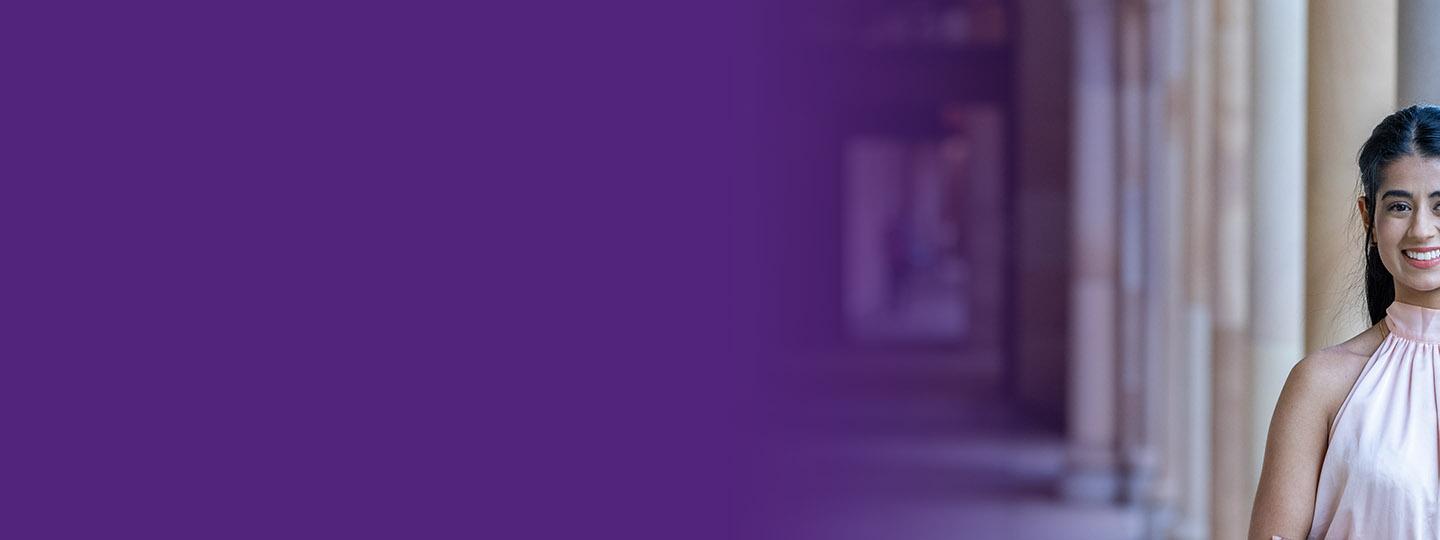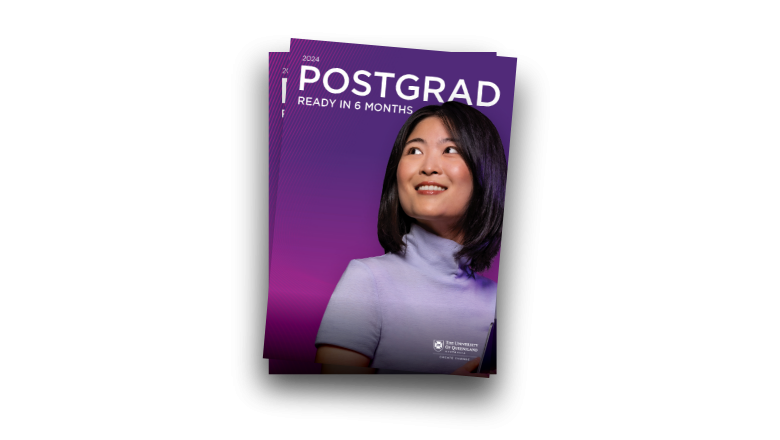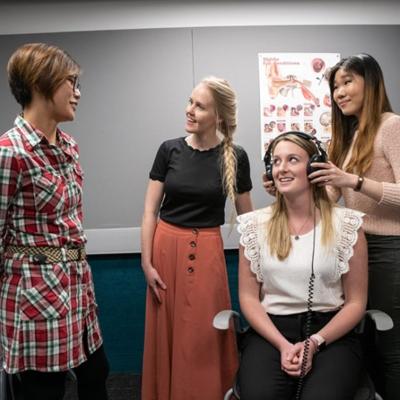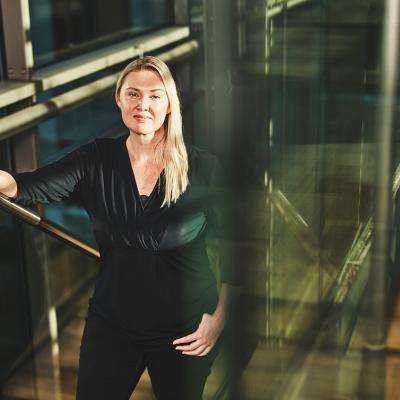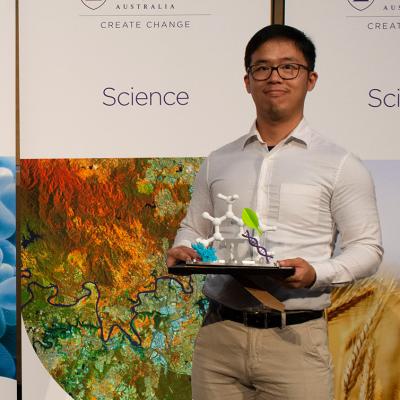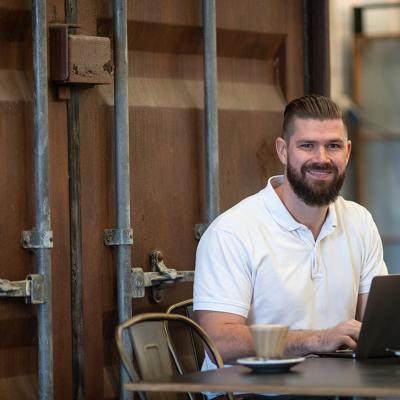Health technology and practice is an exciting postgraduate study area helping health professionals upskill and progress their careers in new directions.
Health technologies are constantly evolving, which impacts professionals working in all aspects of healthcare. It’s certainly an area where you need to continue your training to meet and exceed patient expectations.
We’ve talked to a graduate and a current student of UQ’s Master of Audiology Studies to find out what it’s like to study in this fascinating and ever-changing field.
Anthea Bott works in research and management for a hearing aid manufacturer, and Ramneet Ubbi is a paediatric speech pathologist looking to expand her skills as a clinician. They’re both keen to share their insights and advice to help you decide if undertaking postgraduate studies in health technology and practice sounds like the right path for you.
What inspired you to undertake postgraduate studies in audiology?
Anthea: It was actually a former colleague who had been studying audiology while we worked together at Centrelink. I was looking to change careers and spoke with her about how she found her career change and what it was like working as an audiologist. She said how terrific it was, how varied her tasks were and, most importantly, how she was able to help people hear and communicate with their loved ones. To me, this sounded like the perfect fit for what I was looking for with my career change.
Ramneet: Working as an early-career speech pathologist, I have recognised a huge need for combined speech pathology and audiology services. However, these specialised services are very limited. In the future, I endeavour to contribute to this population with specialised clinical intervention for individuals with hearing loss.
How have postgraduate studies in health technology and practice helped you to achieve your career goals?
Anthea: It has been the best decision I have made to study the Master of Audiology Studies program. It was the stepping stone to where I am today, but I made a lot of ‘outlier’ decisions.
When I started the program, I assumed I would be a clinical audiologist, that is, based at a hospital or at a hearing aid clinic. It was only toward the end of the program that I considered undertaking a PhD, which led me to Copenhagen, Denmark – where more opportunities presented themselves.
Now I manage a team of data scientists/machine learning engineers in an R&D department of a hearing aid manufacturer. It is quite remarkable to think how things have progressed over the past 9 years – I am excited to see what new challenges are around the corner.
“There is no way I could have predicted this would be my career path when I attended my first audiology lecture.”
Ramneet: Studying audiology is preparing me for the workforce. With so many challenges and changes to the healthcare system, being a prepared clinician that is holistic in their service will assist the community. Audiology is preparing me to serve the hearing-impaired population alongside my career in providing speech pathology intervention.
I have been able to recognise no individual client is the same; they all come with different diagnoses, and it is up to us as clinicians to work with both the client’s strengths and limitations to help achieve goals. I am continuing to develop my professional connections so I can connect with the different avenues of specialisation available in audiology.
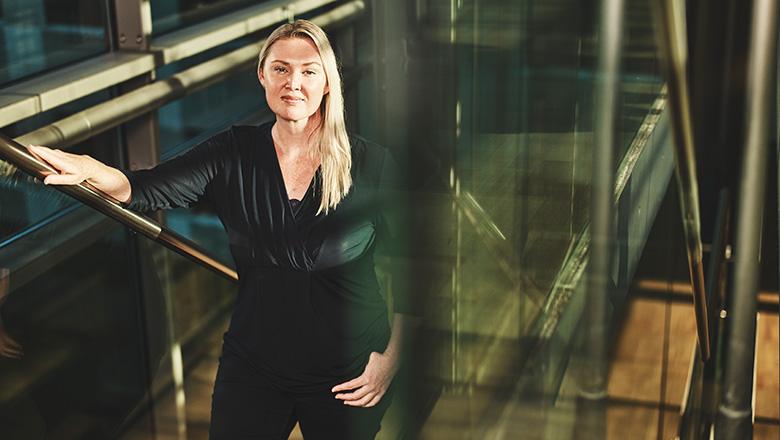
Part of Anthea's job involves travelling to different countries and presenting to external stakeholders on what her team is working on in the audiology research and development space.
What has been your favourite course to study and why?
Ramneet: My favourite course so far has been Clinical Practice in Audiology II (AUDL7806). This course allows me to apply all the technical content into a simulated appointment between you and a client. It puts you on the spot and helps you reflect on how you'd approach a case from the very beginning until the end.
Allied health technology and simulation
Interested in seeing how UQ helps health technology and practice students prepare for real patient situations? Take a tour of our simulation facilities.
Which specific courses and/or teachers do you think helped you the most?
Anthea: The research project that I undertook in the second year of the program and the statistics courses.
Ramneet: I highly enjoy the Audiological Assessment and Clinical Practice (AUDL7821) and Advanced Audiological Assessment (AUDL7803) practicals by Associate Professor Joseph Kei as they helped me understand how I need to perform an audiology assessment as a clinician and what it feels like to be the client. It has taught me what I can do next time to make the client most comfortable.
How have your placements and extracurricular opportunities shaped your study experience?
Ramneet: In my postgrad studies, I am treated as an audiology health professional in training and not as a student – this means we are all encouraged to become more independent in clinical practice, but still have the support of academic staff. I can reflect on developing my personal skills after each placement in order to meet the professional competencies.
“I have had a few placements now and they have been a super useful tool to become confident in being able to approach real people and real cases.”
I also went to the Audiology Australia conference this year. It was absolutely amazing to see how far our career in audiology can go, what we still need to achieve and how innovative the next generation of audiologists could be. I was able to connect with other audiology students from universities around Australia.
What does an average day look like for an audiology postgrad student?
Ramneet: As I am in first year, my average uni day looks like completing a tutorial and attending a lecture or two. I might catch up with my classmates after to complete some study and go to my extracurricular class in the evening.
Discover the perspective of another Master of Audiology student, Miriam. Find out what she found most challenging about the program and the standout skills she has learnt.
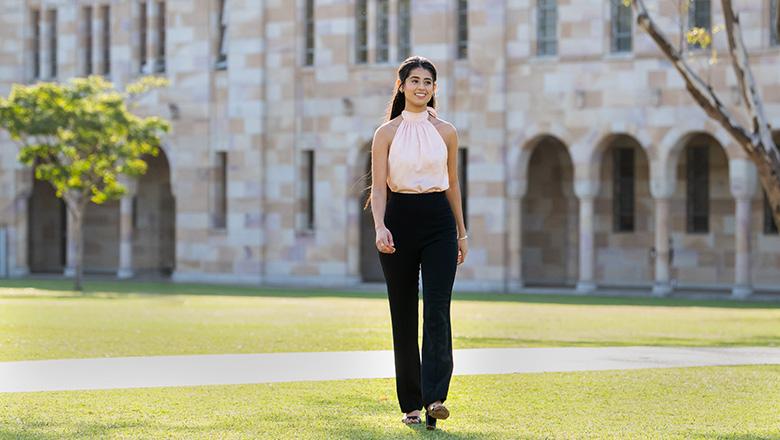
Ramneet is passionate about combining her skills in speech pathology and audiology to provide a unique service to her clients.
Why did you choose UQ for your postgraduate degree?
Ramneet: I chose UQ due to its prestigious reputation, the commitment to its teaching staff and the quality of clinical practice training provided to students. Because of this, I am more prepared and confident in providing treatment for complex patient cases.
Did you know?
- UQ is #3 in Australia and #31 in the world for life sciences and medicine, according to QS World University Rankings by Subject 2024.
- UQ is #4 in Australia and #54 in the world for clinical and health, according to Times Higher Education World University Rankings 2024.
- UQ is #4 in Australia for medical technology, according to Shanghai Ranking 2023 Global Ranking of Academic Subjects.
What types of postgraduate degrees can you study in health technology and practice at UQ?
Digital technology in health is constantly progressing. Stay ahead of the curve so you can improve patient’s lives with one of UQ’s postgraduate degrees in health technology and practice:
- Master of Audiology Studies
- Master of Nursing Studies
- Master of Magnetic Resonance Technology*
- Master of Biotechnology*
- Master of Biotechnology Research Extensive
- Master of Medicine**
- Graduate Certificate in Clinical Informatics and Digital Health
*Also available to study as a graduate certificate or graduate diploma.
**Also available to study as a graduate certificate.
Find out how to get postgrad ready in 12 months or discover what it’s like to study postgraduate programs in other fields of interest.

